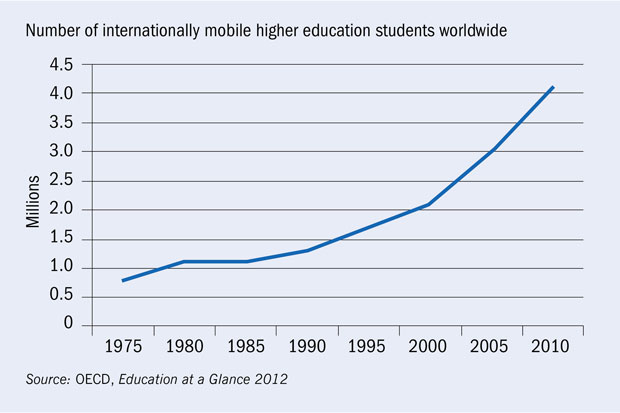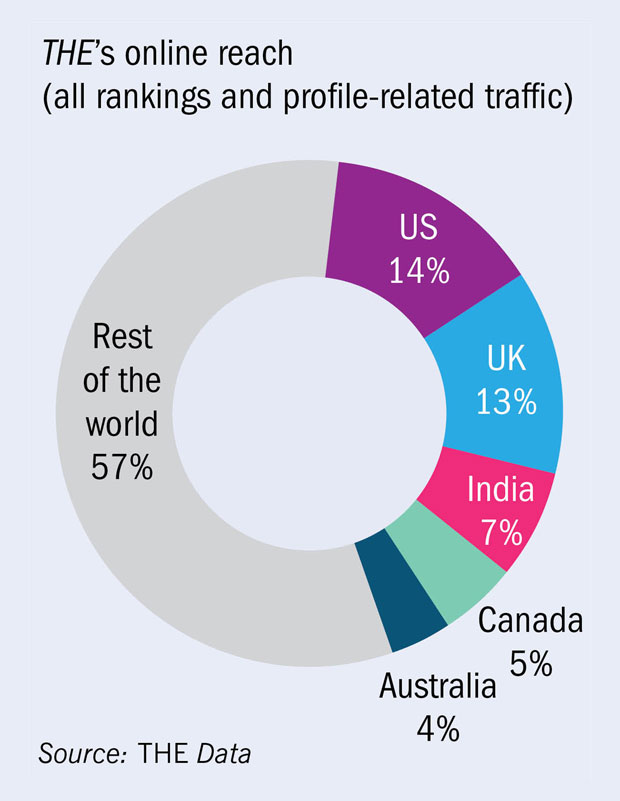View the full World University Rankings 2015-2016 results
Lots of industries and professions claim to be global, but few have evolved into truly international concerns as comprehensively as higher education.
Millions of students now travel around the world to study at the university that promises to transform their lives; academics seek out collaborations across continents; and universities compete globally for talent at the undergraduate, postgraduate, academic and leadership levels.
This dynamism makes higher education one of the most exciting and important global industries: by creating networked societies and economies, universities are shaping the world we live in.
But this shift has also created new levels of competition, new financial imperatives, and new challenges for institutions that do not grasp the need to both collaborate and compete.
For university leaders it has introduced a new layer of complexity, and for their students and staff it has expanded the spectrum of opportunities as they seek to build their careers.
Times Higher Education, which has a heritage spanning five decades, has evolved, too.
We have always been dedicated exclusively to higher education. But like universities, their staff and their students, we are now at the heart of a global sector.
With this in mind, THE has refined its mission, focusing everything we do on helping universities – and those who work and study in them – to improve their performance and construct the sector the world needs.
How are we doing this? By harnessing data at the global and local level to enable meaningful measurement, insight and benchmarking of institutional performance; by providing the most respected news and analysis of global higher education issues and trends; by facilitating discussion, engagement and networking among those leading and working in universities; and by helping to make crucial matches between institutions, faculty, senior leaders and students.
Let me briefly unpick that and take you back to where our journey started. THE has long been a trusted voice in higher education, providing journalistic scrutiny, news and analysis alongside comment and insight from academics themselves.
For many years we have also enabled universities to advertise jobs and recruit academics and administrative staff.
More recently, however, we have evolved from being a traditional publisher to also become a data provider and event organiser, building first the world’s pre-eminent university rankings portfolio, and then a successful series of global higher education summits.
This has been an incredibly important development for THE, building on our established strengths to extend contact with our audience of academics and university leaders. We have moved beyond content alone to provide data and benchmarking services and, crucially, face-to-face networking time on the campuses of partner universities around the world via our Summit series (its flagship event, the World Academic Summit 2015, is being held at the University of Melbourne this week).
The journey we have made mirrors that of higher education over the past decade. We have grown into a global organisation, with offices in Australia, Singapore and the US, and teams that engage with institutions across the length and breadth of their activities.
Our aim is to help universities, their staff and their students to be the best that they can be. By doing so, we hope to play our part in shaping the higher education sector the world needs.
Trevor Barratt
Managing director, higher education, TES Global



Register to continue
Why register?
- Registration is free and only takes a moment
- Once registered, you can read 3 articles a month
- Sign up for our newsletter
Subscribe
Or subscribe for unlimited access to:
- Unlimited access to news, views, insights & reviews
- Digital editions
- Digital access to THE’s university and college rankings analysis
Already registered or a current subscriber? Login




